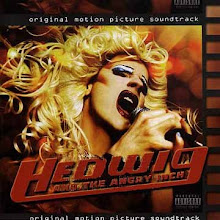What surprises me is how this whole affair seems to have developed the shelf life of a Twinkie -- popping up in conversations, random blogs, and otherwise neutral corners of the Internet months afterwards -- and how it snowballed from a single incident to a full-blown national scandal, fueled on by syndicated news networks.
Let's get this straight: I strongly support gay marriage. I have always believed that the same legal rights available to straight couples should be extended to those in same-sex relationships. I cannot honestly find a single logical, legal, or social basis for why gays should not be allowed to take the same oath if they wish.
So I find it exceptionally tragic that the Prejean vs. Perez affair emerged at the cusp of rising protests in California. Not only does it add a touch of sleaze to an otherwise important and crucial time in the gay civil rights movement, it ironically threatens to repel even more people from an already polarizing issue. That Perez has fashioned himself as the new poster boy for gay marriage is sickening; his shrill and underhanded treatment of Prejean makes him seem even more intolerant than those against gay marriage in the first place. He has unwittingly helped draw sympathy for Prejean, who, quite honestly, was just speaking her mind. She's a beauty queen, not a politician. And beauty contests aren't exactly epicenters of social progress, so why the shock and surprise?
For the campaign against the marriage ban to gain momentum, I think it needs to court the sympathy not just of gays, but of straights and those who are still open to the issue. It needs to be treated as not just a 'gay issue,' but a human one that affects us all.
Perez co-opting the issue and using it as a sort of self-glorifying publicity stunt is disgusting, and threatens to drag the movement back by a few decades. In so many ways he helps uphold the negative stereotype. I support gay marriage and I am one of many straights who support the movement. But bitch, you definitely don't speak for me.




